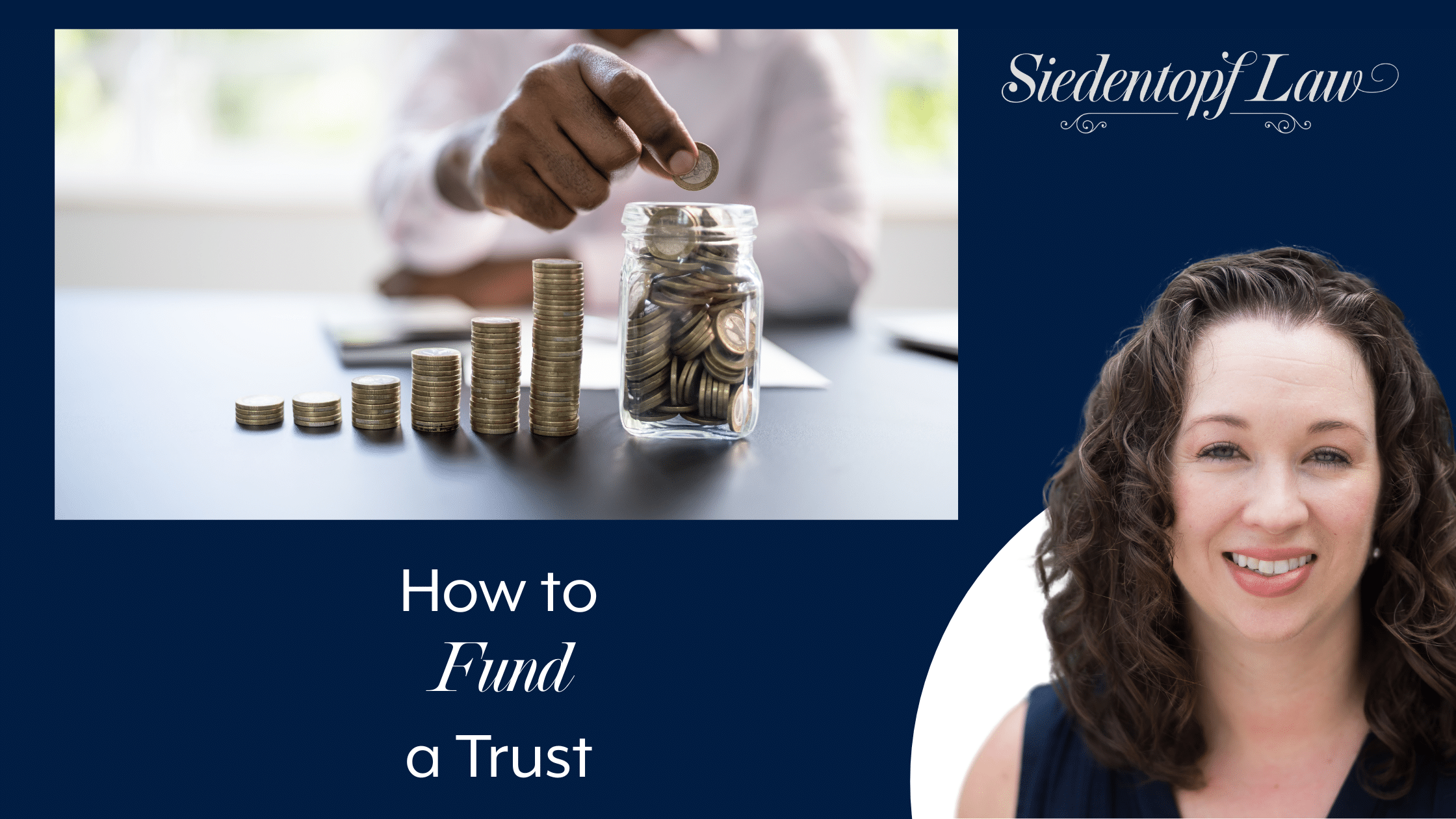How to Fund a Trust

I’ve got a trust, but I’m not sure it’s funded or even what that means.
Hi, I’m Sarah Siedentopf. I’m an estate planning attorney in Atlanta, Georgia.
Funding your trust is such an important thing and such a misunderstood thing, so that’s what we’re gonna discuss today. What is funding a trust? And the first thing I want you to think about is an empty box.
So if there’s nothing in your trust, if it is not funded, it is an empty box. It governs nothing. The second thing that I want you to think about is a bank account. If I open a bank account, that is much like opening a trust. If I do not put any money in the bank account, it does me no good whatsoever, so if I have money under my mattress at home, my bank account is not funded. I did not do what I needed to do to transfer that money into the bank account. Bank account not funded. So, same thing with a trust, if we open a trust, and they’re not supposed to be empty, but that’s another story. You might see a mention of $10 in your trust agreement. But if we don’t do something to put items into the trust, they are not in the trust, that box is still empty. We can have as many fancy management items about assets owned by the trust; if there are no assets owned by the trust, it doesn’t do any good. How do I get items into my trust, AKA fund it? Now, the first thing is to realize that not every single item you own or have an ownership interest in needs to go into your trust. It is very situation-dependent and based on your goals, your family, et cetera, et cetera. So funding your trust is getting the things that you mean to have in your trust into your trust. A lot of times, that’s gonna be a house. So if I own a house, I wanna make sure that it’s in my trust so that, if I pass away, it’s not going through probate. You get real property, AKA houses, land, into a trust by transferring the deed. So instead of owned by Sarah, it’s now owned by Sarah as trustee of the Sarah Trust. Bank accounts, as we were talking about, have really two options, the first option being that we change the actual name of the bank account, the ownership info on it, so that it references the ownership of the trust. Or a lot of banks allow for payable on death beneficiaries. So we can say, okay, it’s Sarah’s bank account during her lifetime and then have the trust as the payable on death beneficiary so it goes in there after I’m gone. Anything like life insurance or retirement accounts is gonna be via beneficiary designation. Again, this is one to be thoughtful about, because not every life insurance or IRA is something that you are trying to put into the trust. Perhaps it is more appropriate for it to go outright to a person. But if you want it to be in your trust, then that’s getting there via beneficiary designation. So each thing that you are trying to put into the trust needs to have some paperwork showing it. Business assets and personal property are both via assignment of assets, business assets. Depending on what structure your business is in, those will vary a lot. But we need to be able to go through paperwork somewhere, whether that’s the bank paperwork for my bank account or my business paperwork that’s in a file folder, and show who owns this account, who owns this item, and if it’s not the trust, then I have not funded my trust, or perhaps my trust is partially funded and it’s not in the trust. Depending on the item and the ownership structure, we might be dealing with probate. So hopefully that helps as you’re thinking about what funding your trust is. It’s not terribly mysterious; it’s just understanding that each item has to be officially connected to your trust in some way, in the same way that each item that you own has to be officially connected with you in some way. So if you’ve got a trust and want to talk about questions, I would love to hear from you. And if you’re thinking about setting up a trust, I would also love to hear from you. Thanks.


